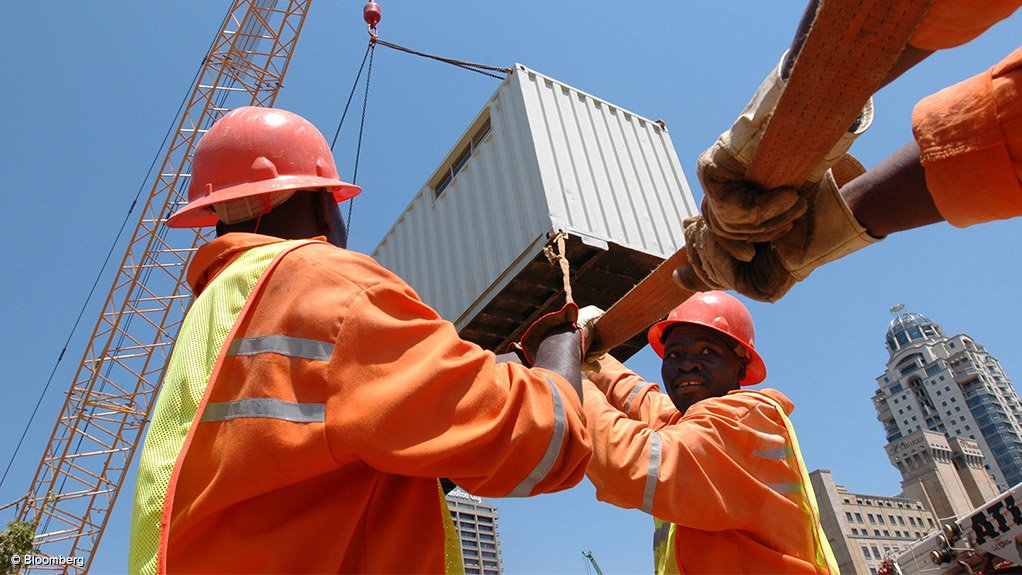As far as infrastructure plans go, government’s National Development Plan (NDP) is “right up there” with the best in the world, says KPMG global infrastructure chairperson James Stewart.
He regards the strategic integrated projects (Sips) approach as “quite innovative”, as this “cross-sectoral approach” deals with a number of different issues at once.
Plans such as these often tend to deal with infrastructure on a sector-by-sector basis only, such as water or transport.
Also counting in the NDP’s favour is that South Africa has “a good track record” in delivering big, and/or public-private partnership projects, says Stewart.
However, the NDP also faces some challenges.
It requires more funding than exists in the national budget, and borrowing the required funding may prove problematic, says Stewart.
Should South Africa continue to be downgraded by international ratings agencies, the cost of debt to build infrastructure will go up exponentially.
“Credit ratings are important when it comes to infrastructure development,” says Stewart.
One method to increase government funding is to expand the middle class.
A bigger middle class means a bigger tax base, which can be leveraged to fund infrastructure development.
“If you talk infrastructure, you talk jobs,” says Stewart.
The informal sector provides jobs, but not jobs that contribute to the tax base.
Internationally, almost all governments’ fiscal ability to pay for infrastructure has deteriorated, with States finding it difficult to fund infrastructure using their balance sheets, says Stewart.
“Governments need more imaginative ways to fund infrastructure.”
The trend is to implement consumer charges to pay for infrastructure, such as toll fees for road construction.
Toronto, in Canada, for example, wants to expand and improve its transport system. To achieve this, the city is looking at four different taxes, including a fuel tax and increased sales tax.
South Africa’s NDP also faces the challenge of moving from paper to reality.
“I can name ten countries with the same problem,” says Stewart.
He believes it is necessary to secure the right leadership for the project.
It would be helpful if each Sip had a project leader whose task it was to deliver the project.
Another positive will be to set up independent monitoring and review teams, made up of industry experts, to question whether the project is on track and to determine how project delivery can be improved, notes Stewart.
The team can ask questions such as: Can we afford it? Is the design advanced enough to move to construction?
To be audited on a national level tends to ensure project teams “get their act in order”, says Stewart.
He believes the global private sector will continue to respond to tenders coming out of South Africa, even if the country has a strong developmental or redress policy, such as requirements for black economic empowerment.
Globally, the trend is that political risk is on the increase, he notes, with the public sector concerned that politicians will change their minds.
Stewart says the feedback he has had from South African contractors and funding institutions is that the political risk has increased locally.
Worldwide, infrastructure spend is expected to reach $78-trillion up to 2025, and is currently running at $4-trillion a year, increasing to $9-trillion a year up to 2025.
The trend is that more of this spending will happen in the east than the west, says Stewart.
Trends also indicate that one in four workers will be in Africa by 2050, and one in eight in China.
Looking at the African continent, this means there is an urgent need for education on the continent, says Stewart.
“The biggest single constraint is skills. You need an incredible talent pool coming through the education system in Africa and South Africa.”
Food production is also important.
“If you are well fed and well educated, anything is possible,” notes Stewart. “Food production and education is very important to Africa.”
He believes the next big global infrastructure spend will be in the agriculture sector. This includes irrigation systems, increasing the yield and transporting the food to market.
EMAIL THIS ARTICLE SAVE THIS ARTICLE
To subscribe email subscriptions@creamermedia.co.za or click here
To advertise email advertising@creamermedia.co.za or click here











